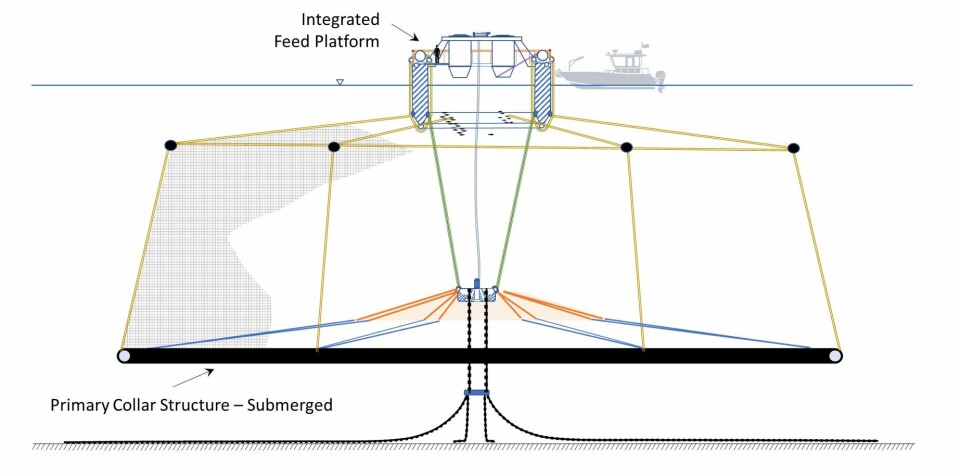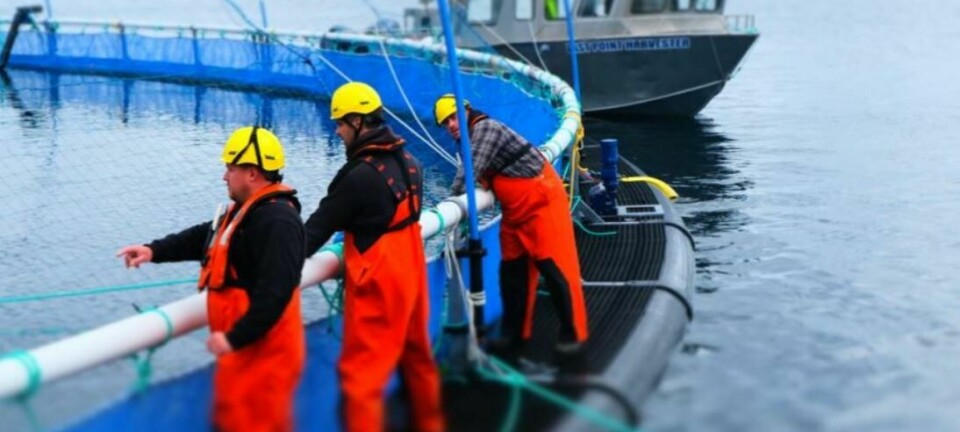
£50k feasibility study into affordable offshore fish farm
Impact9, which has designed a Scotland-specific submersible cage for offshore salmon farming, has been given funding to carry a feasibility study for its technology’s application in UK waters and a commercialisation plan for the UK market.
The UK Seafood Innovation Fund is financing the £50,000, three-month project, which began at the end of November. The study partners Dublin-based Impact9 with Tension Technology International, an expert in delivering low-cost marine structures based on fibre ropes and flexible membranes.
The partners will use lessons learned in wave energy technology to further develop a pen concept based on flexible materials. Initial laboratory testing and numerical modelling was already completed in 2019.

Competitive and secure
The pen concept will target prevailing UK open sea conditions, focusing on delivering new, competitive, secure, safe, and environmentally sustainable aquaculture growth opportunities.
Impact9 founder John Fitzgerald said the Scottish aquaculture market is a strong candidate for early adoption because of a sophisticated licensing regime with respect to high energy sites, an excellent supply chain and a stated industry ambition to double salmon production.
The project partners will configure a first-of-a-kind pen design, specifically to gain early traction in the Scottish market, collaborating with the Scottish Association for Marine Science (SAMS), experts from the European Marine Energy Centre and Scottish fish farm operational experts.
Second phase
If the project is successful, Impact9 will be able to apply for second phase funding of £250,000 to carry out research and development.
Impact9’s proposal is for submersible cages that would allow offshore salmon farming without the cost of building an oil rig-style structure such as SalMar’s successful but expensive Ocean Farm 1.
The cages would alleviate lice and algal bloom problems by keeping salmon six metres below the surface – or more if required – and are designed to be used in the 30-40 metre depths common around the British Isles.
Step-change in productivity
The UK Seafood Innovation Fund supports bold and ambitious tech-driven projects that will enable a step-change in the productivity and sustainability of the UK seafood sector.
It is administered by the Centre for Environment, Fisheries and Aquaculture Science (Cefas) on behalf of the Department for Environment, Food and Rural Affairs (Defra), and supports projects with a long-term vision to improve the UK seafood, fishing and aquaculture industries.






















































